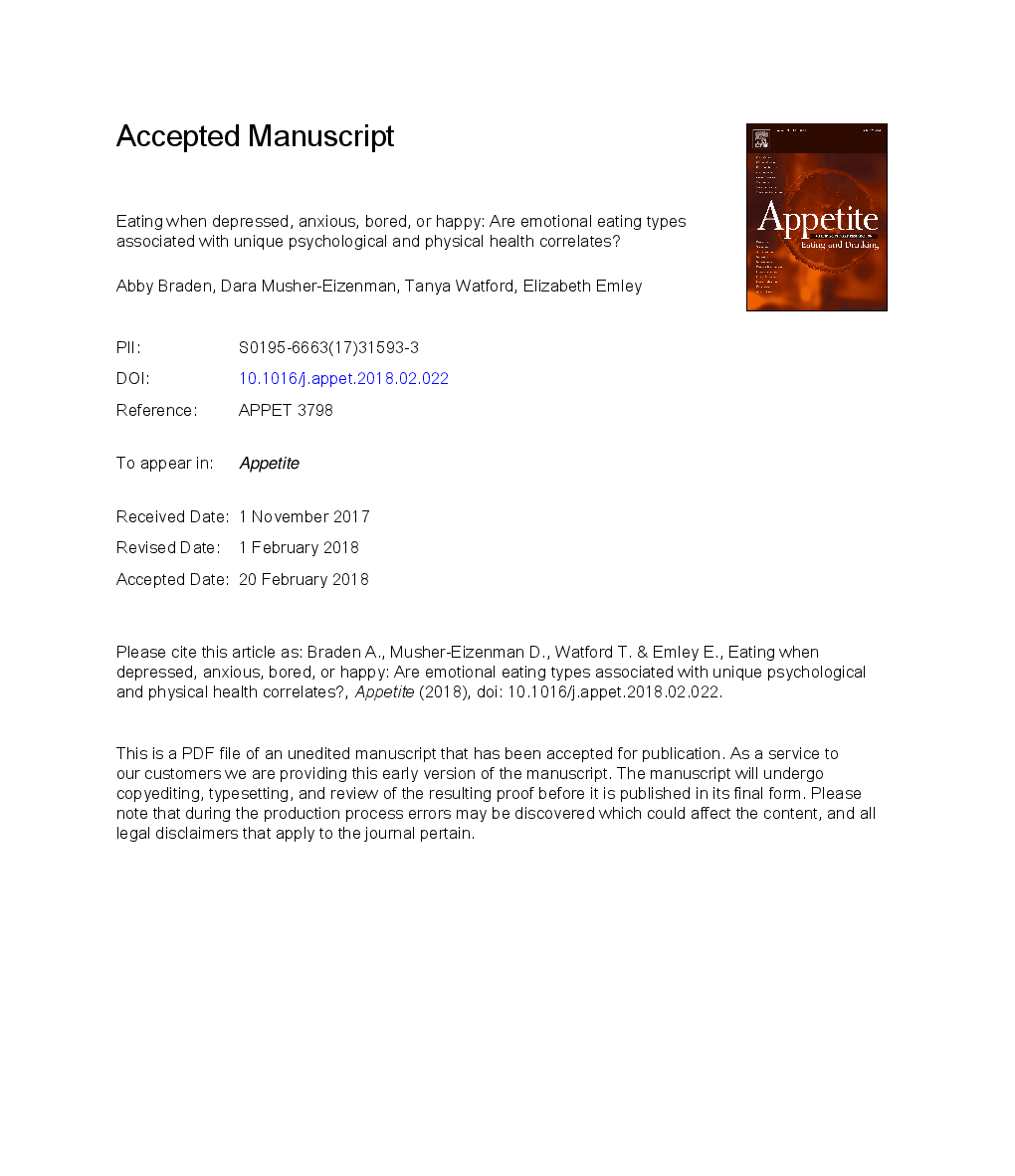ترجمه فارسی عنوان مقاله
خوردن زمانی که افسرده، اضطراب، خسته، و یا خوشحال: آیا انواع خوردن احساسی مرتبط با سلامت روانی و جسمی منحصر به فرد است؟
عنوان انگلیسی
Eating when depressed, anxious, bored, or happy: Are emotional eating types associated with unique psychological and physical health correlates?
| کد مقاله | سال انتشار | تعداد صفحات مقاله انگلیسی |
|---|---|---|
| 129430 | 2018 | 35 صفحه PDF |
منبع

Publisher : Elsevier - Science Direct (الزویر - ساینس دایرکت)
Journal : Appetite, Volume 125, 1 June 2018, Pages 410-417
ترجمه کلمات کلیدی
خوردن احساسی، چاقی، مقررات احساسی،
کلمات کلیدی انگلیسی
Emotional eating; Obesity; Emotion regulation;

